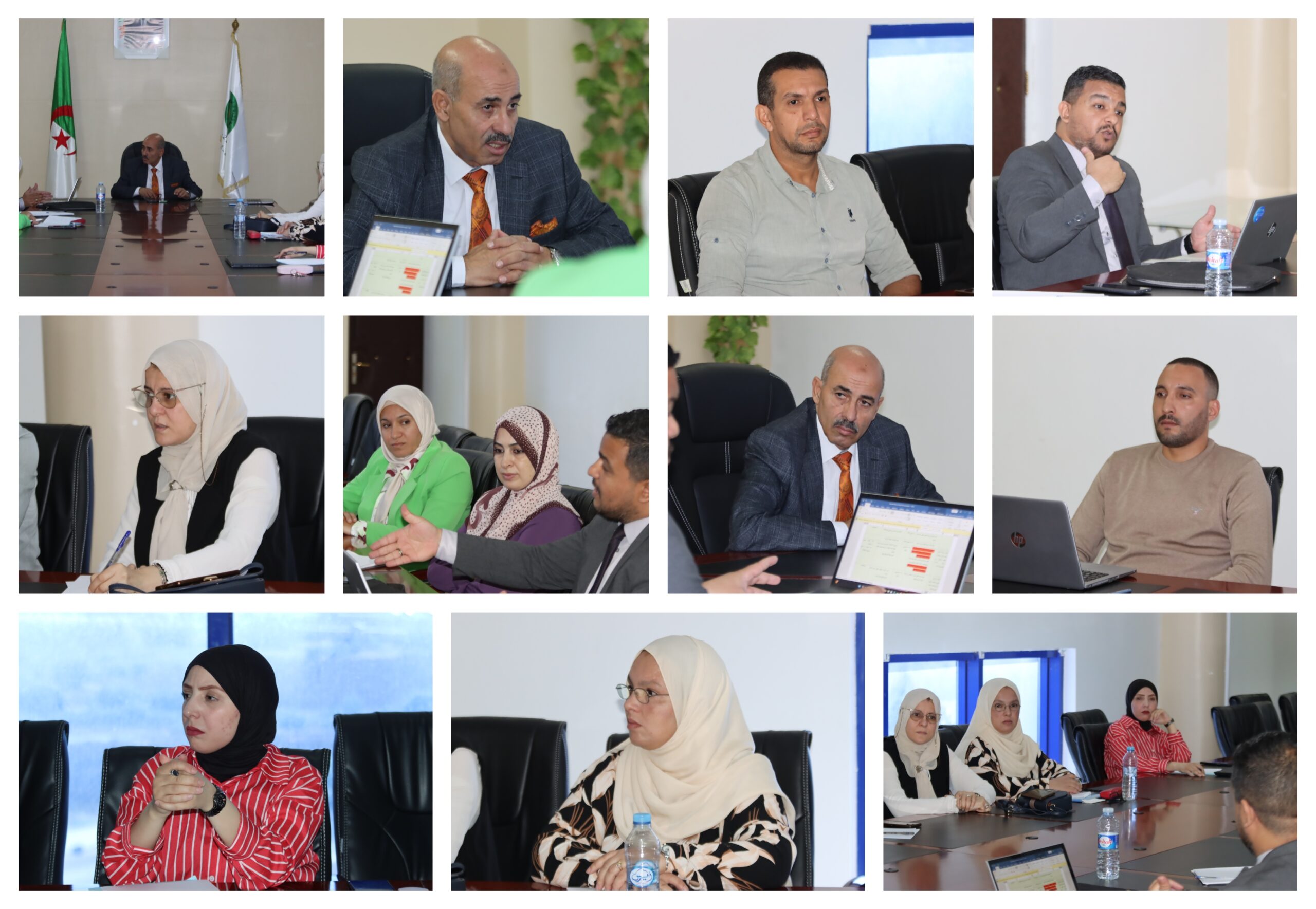The Rector of the University of Blida 2 helding an expanded meeting with heads of various specialized cells and centers affiliated with the university
The Rector of the University of Blida 2 Lounici Ali, Professor Farid Kourtel, held today an expanded meeting with heads of various specialized cells and centers affiliated with the university, in a step aimed at evaluating comprehensive institutional performance and formulating an integrated work strategy that keeps pace with academic and technological developments.
The meeting witnessed the participation of heads of strategic cells and specialized centers, primarily the cells for: promoting the classification of scientific journals, promoting visibility, digitization, quality assurance, in addition to the Center for Modern Information and Communication Technologies, the Artificial Intelligence House, the English Language Monitoring Cell, and the Distance Learning Cell.
During the meeting, the achievements of the past period were discussed, as heads of cells and centers presented detailed reports on their accomplishments and the challenges they faced. Quantitative and qualitative performance indicators for each structure were also analyzed individually.
In the same context, the proceedings focused on establishing clear-cut work strategies to improve the classification of the university’s scientific journals at both national and international levels, accelerating the pace of digital transformation in various administrative and pedagogical services, as well as consolidating the culture of quality and excellence, and enhancing the institution’s academic and media visibility. The attendees also gave special attention to developing the distance learning system, supporting the use of artificial intelligence techniques in the educational and research process, alongside intensifying programs aimed at enhancing the level of English language proficiency among students and professors, in service of openness to the global academic space.
In his guiding address, Professor Kourtel emphasized the necessity of effective integration and coordination between the various cells and centers, calling for the establishment of realistic work plans that are measurable and subject to periodic monitoring, with the specification of precise timelines for implementing programmed projects.
The Rector affirmed that developing the performance of these structures constitutes a fundamental pillar for achieving institutional excellence and elevating the university’s position in national and international rankings.

